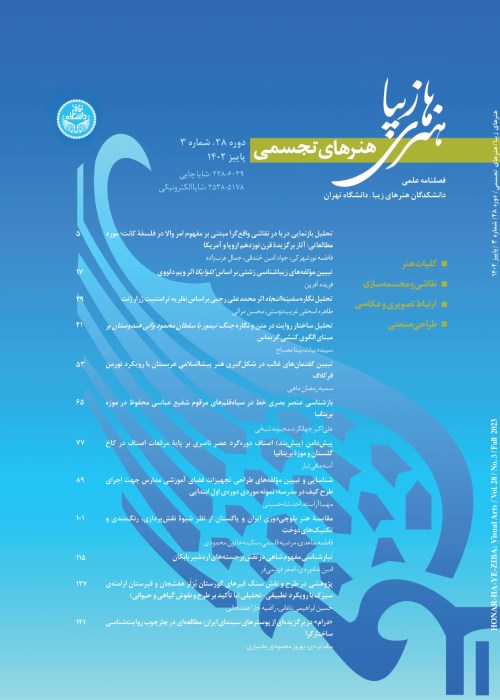Fashion Design in Developing Countries Investigating The role of Participatory Design as an alternative for Fashion Design Methods
In recent years, fashion has been introduced as a prominent taste which is imposed by owners of this industry to the society. Recently change of consumption patterns have been increased rapidly, while changes in fashion industry has also changed industries and economies of these countries as well. Through changes in global relationships and structures, omitting industrial concentrated production style, presence of multi-national companies, sophisticated conditions of competition in the world and generation of new methods for capturing the market, developing countries are in deep challenge in the field of fashion Industry; a lot of their economic resources would be used for cultural behavior of their middle class in order to access global brands and fast fashion systems. In contrast and in continuum of these changes in economic and trade relationships, those countries have tried to change patterns of consumption and entering the competition through foreign investments; however these countries do not have the potential to compete with this phenomenon through industrial Production-consumption cycle. This research does not aim adapt those mentioned methods with the conditions of developing countries, but some common conditions and real situations are considered in which the potential for competition with other countries is restricted and fashion in these countries are under dominance of brands. That is why this research tries to investigate the reasons for generation of current situation in its historical context and study past activities in the related domain. The result of such a study would be in the shape of recognition of design strategies for those countries, possibilities of participation in those industries and present resultant strategies for limited competition in the domain of fashion design.The result of this investigation shows that by entering the Globalization and Post-Industrial era and by importance of personality which generates a system together with presence of sub-cultures, the need to personal expression and taste has been increased rapidly and current industries cannot fulfill such a need for all the people in the world. As a virtue, such a change would enable developing countries to design production systems without a need to shape industrial infrastructures and they can develop their production plans based on domestic industries and through support of small and creative work stations. In the design phase, approaches like participatory design and increasing role of consumer in design and production of fashion, would let them involve more in design process and would also increase their skills and knowledge. The needs of customers, such as differentiation and eye-catching design would also be involved to the product and new roles for the designer would be shaped; roles such as facilitator, generator and assistant of design process for idealization of personal aims. This would result toward a specific fashion style, which can be named as Slow Fashion and can generate a dynamic economic organization which could compete with increasingly speedy current fashion system (namely Fast Fashion), which tries to fulfill the market based on ready and unified style design.
- حق عضویت دریافتی صرف حمایت از نشریات عضو و نگهداری، تکمیل و توسعه مگیران میشود.
- پرداخت حق اشتراک و دانلود مقالات اجازه بازنشر آن در سایر رسانههای چاپی و دیجیتال را به کاربر نمیدهد.


